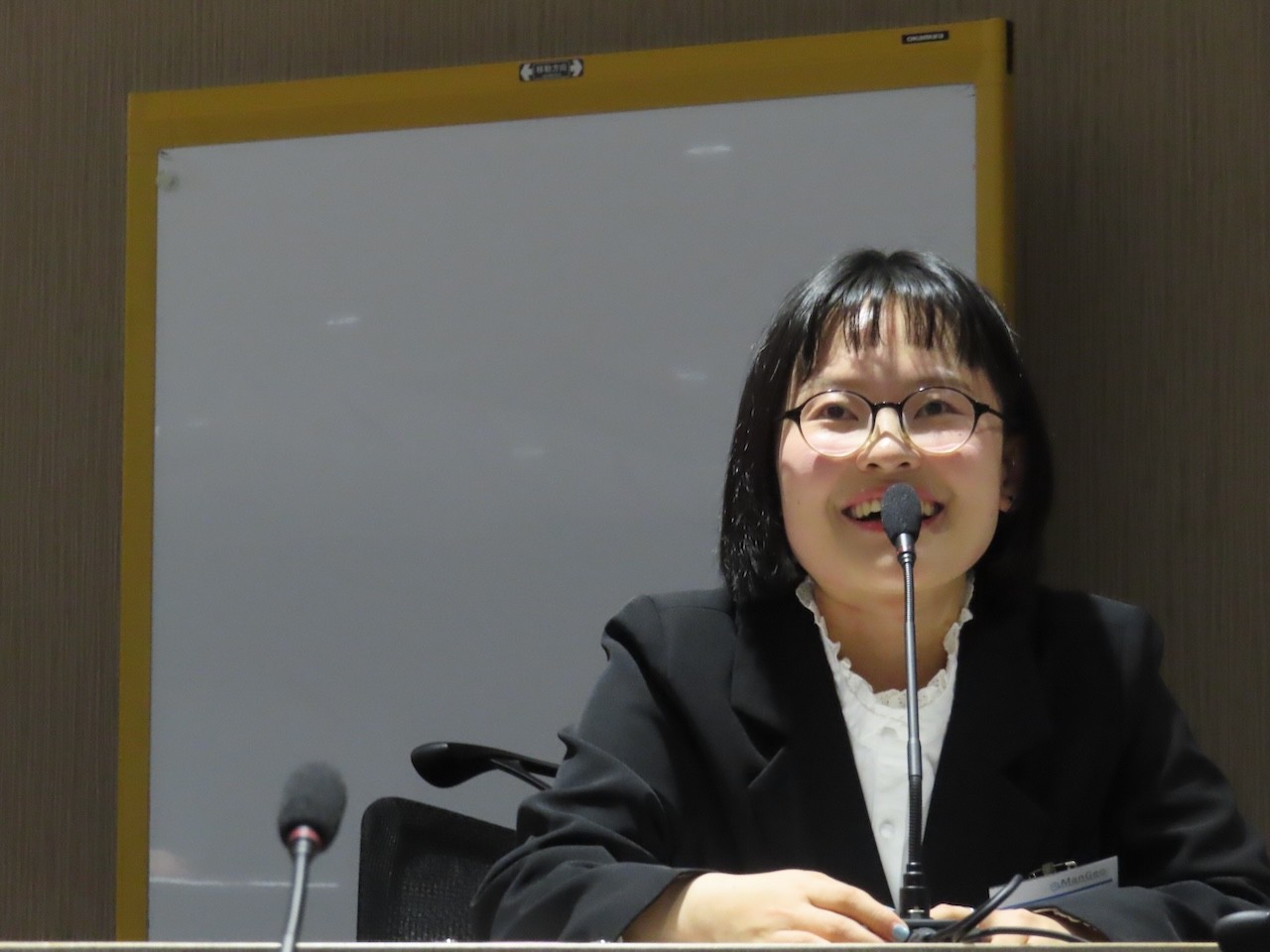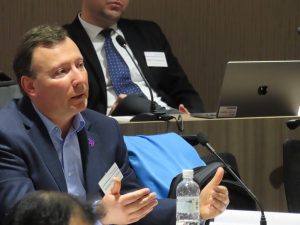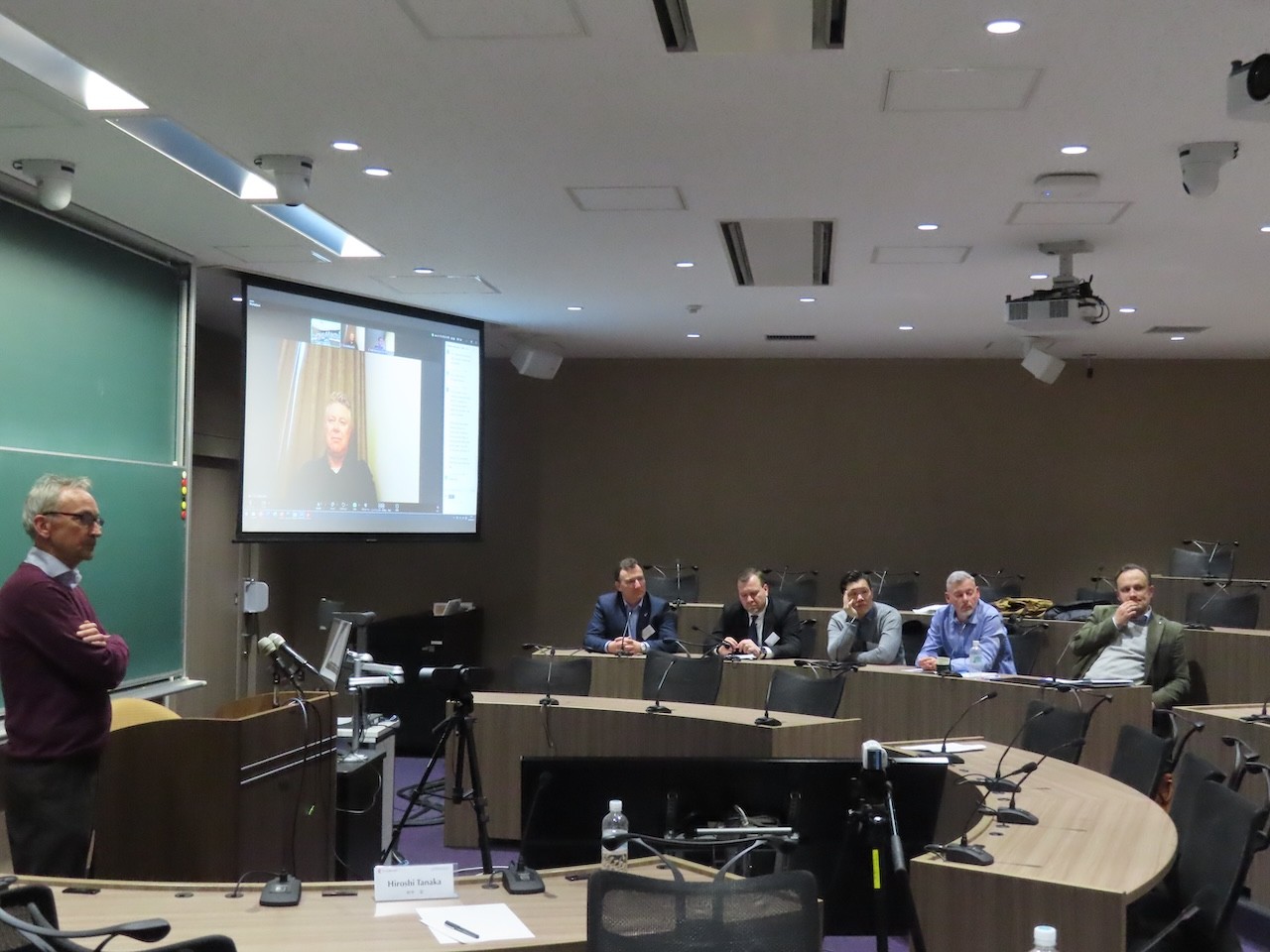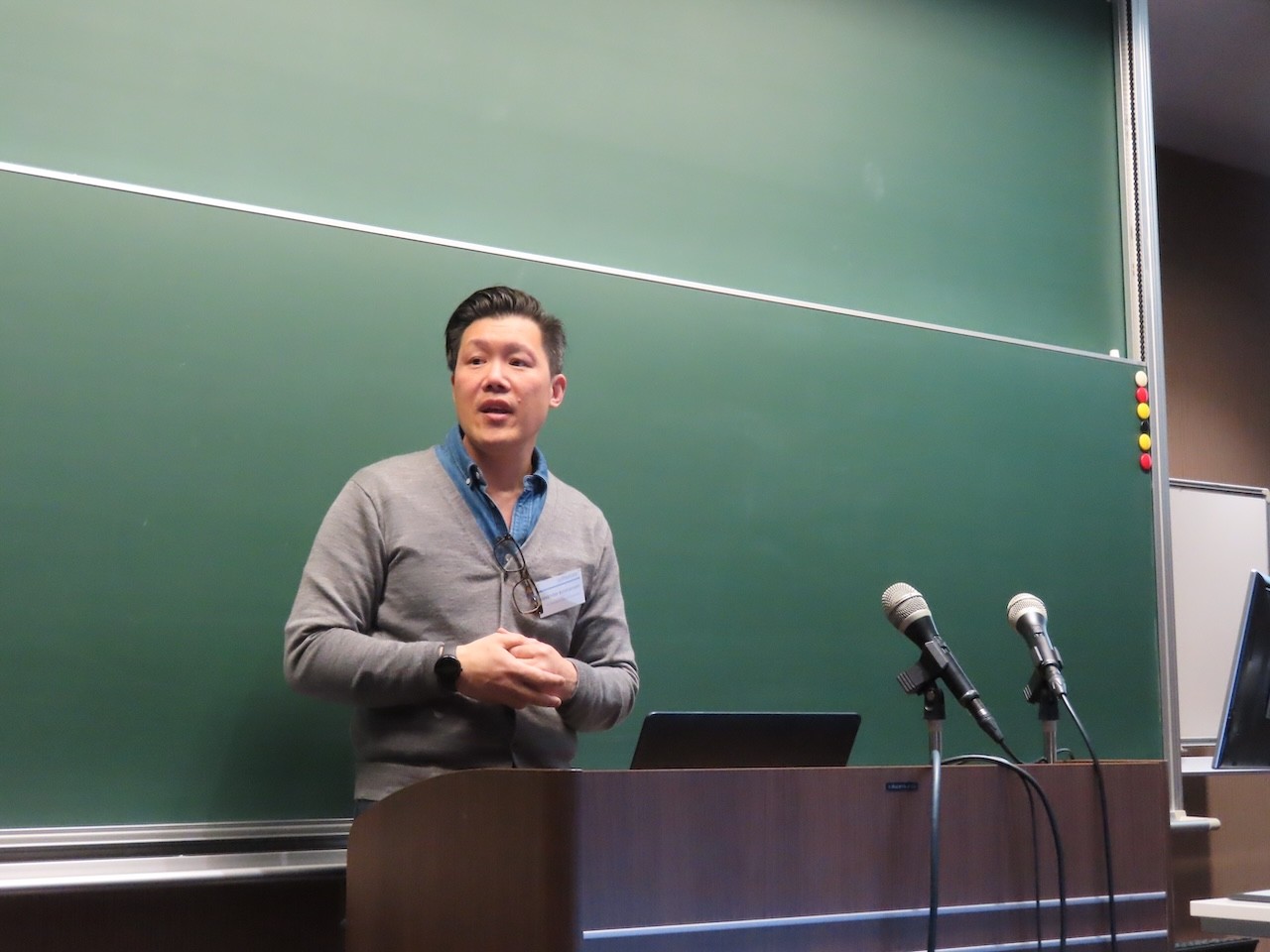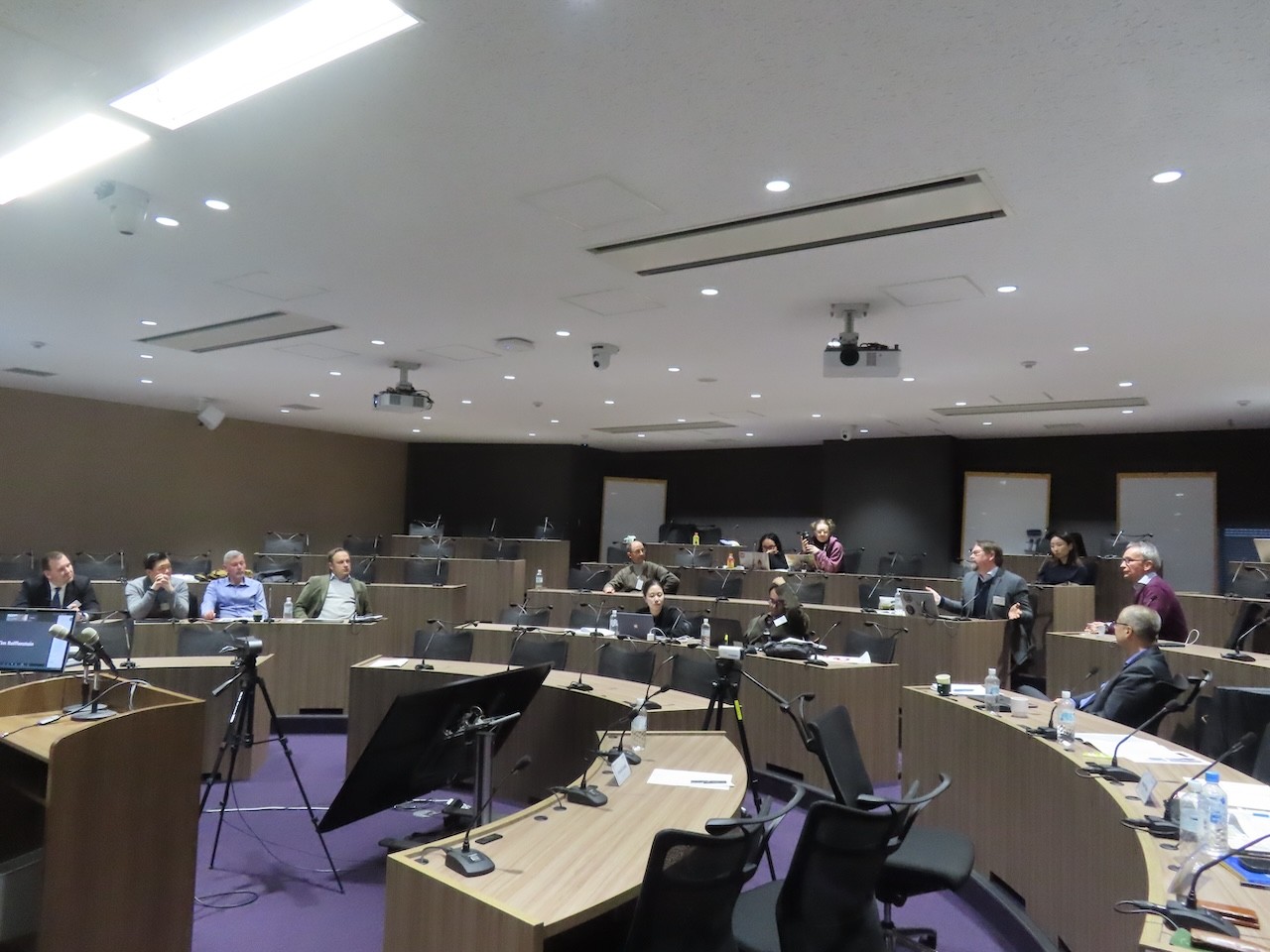ManGeo Research Group activities
Reports on resent research meetings
ManGeo Research Meeting at Ritsumeikan University OIC
Ritsumeikan University (RU) recently hosted the ManGeo Research Meeting, bringing together distinguished guest speakers from Germany to explore the topic of intercultural competence among expatriate managers.
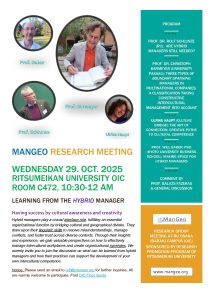
Prof. Dr. Rolf D. Schlunze (Ritsumeikan University) opened the session by introducing the concept of the hybrid manager—a bilingual and intercultural professional capable of navigating multiple cultural and organizational contexts.
Prof. Dr. Christoph Barmeyer (University of Passau) presented his typology of boundary-spanning managers in multinational companies, integrating the principles of Constructive Intercultural Management to explain how managers create value across cultural divides.
Ulrike Haupt (Culture Bridge) shared her original framework, The Art of Connection, emphasizing creative pathways to developing cultural competence and interpersonal synergy.
Prof. Will Baber ベイバー, PhD (Kyoto University Business School) contributed a thought-provoking perspective on the hidden or exclusive spaces of intercultural negotiation, suggesting these areas merit deeper investigation to better understand the hybrid manager’s position and influence.
Professor Fazekas Balazs offered insightful commentary, noting that while cultural awareness is crucial, strategic and political sensitivities remain equally vital in international business contexts. Consul Melanie Saxinger further enriched the debate by advocating for the enduring relevance of the classical assigned expatriate.
A particularly engaging discussion revolved around the role of AI in intercultural competence. Could AI one day replace hybrid managers? The consensus was clear: AI can assist, but not replace. While artificial intelligence can enhance communication, translation, and analytical efficiency, it lacks the empathy, cultural understanding, and ethical reflection that define effective intercultural leadership.
As discussed, AI can reveal patterns of misunderstanding, yet only humans can rebuild trust. In line with Professor Barmeyer’s concept of Constructive Intercultural Management, we concluded that technology should serve as an enabler of human synergy, not its substitute.
Find this article posted to LinkedIn and a detailed report on AI and the Role of Hybrid Managers in Constructive Intercultural Management.
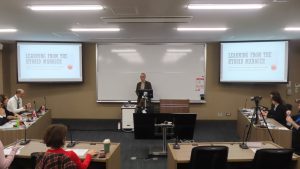 |
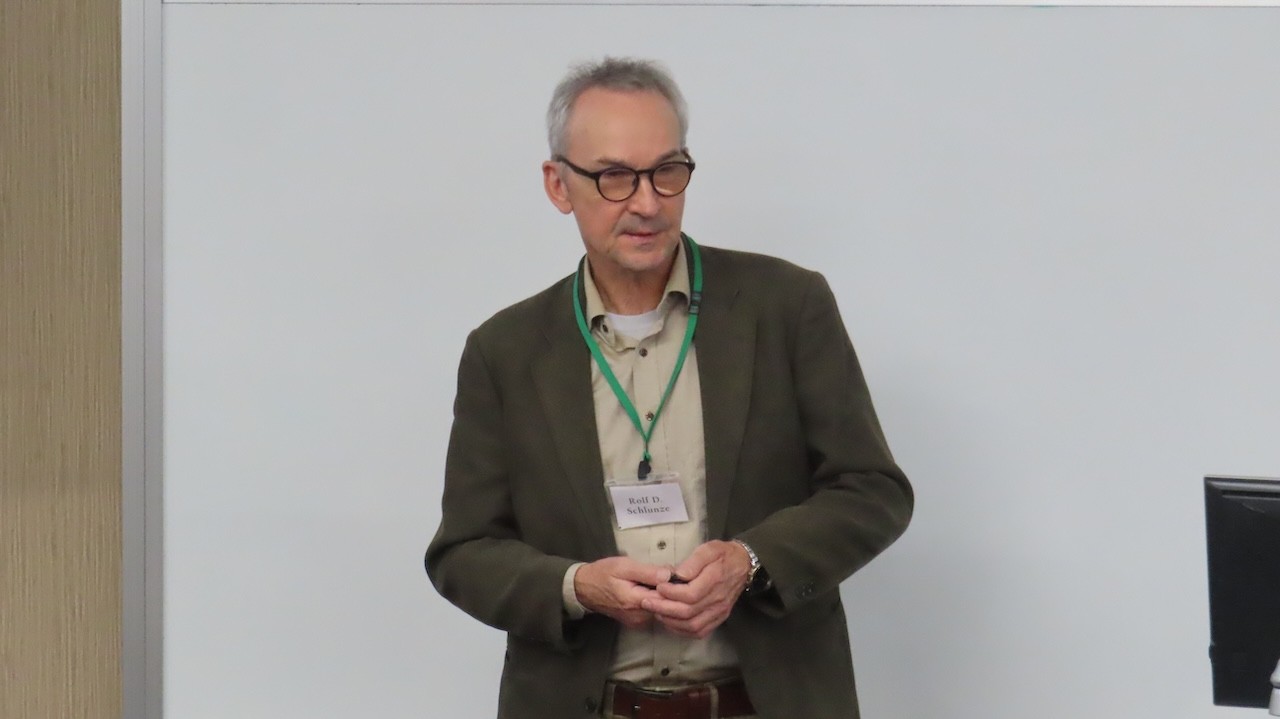 |
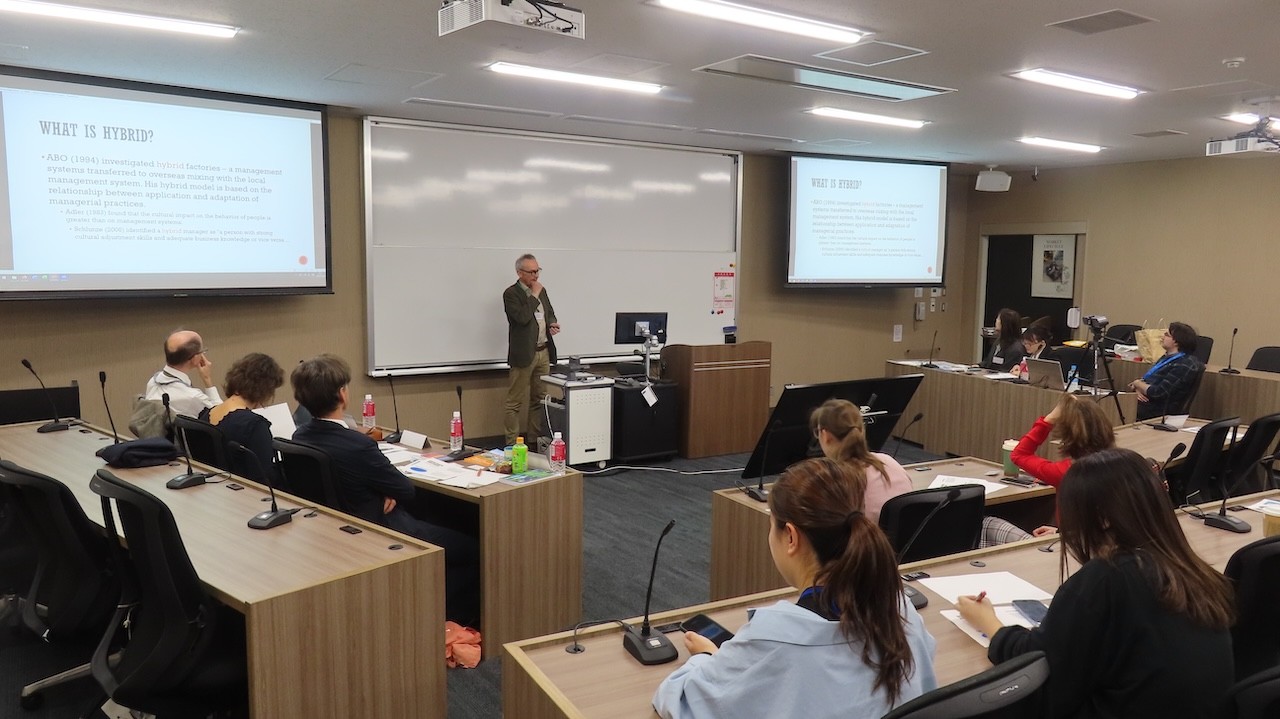 |
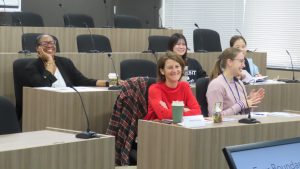 |
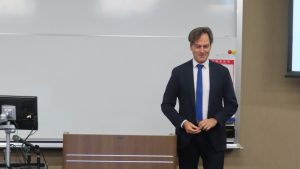 |
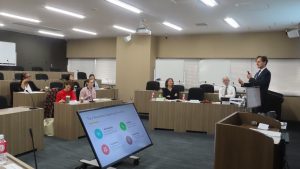 |
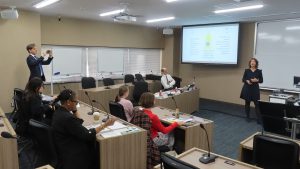 |
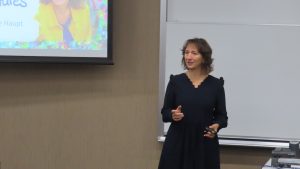 |
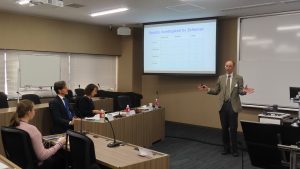 |
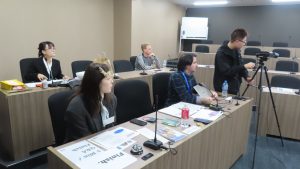 |
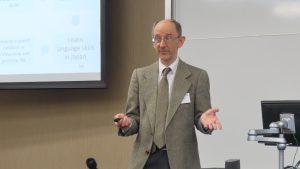 |
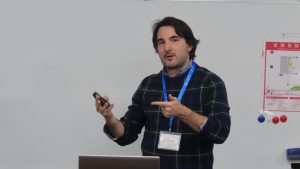 |
ManGeo pre-conference at Ritsumeikan OIC and AJG Symposium
We organized an international symposium at the 2025 AJG Spring Meeting in order to promote our agenda of Management Geography. Ritsumeikan University invited research group members from overseas. International exchange was conducted first during our ManGeo pre-conference at Ritsumeikan OIC on March 17, 2025. Here, we encouraged young scholars to contribute with their research work and they got published with ManGeo working paper series. During the pre-conference we had a variety of topics spanning from theory building to empirical research about diverse managerial problems. One important focus was the EU’s Green Economy and VUCA. ManGeo research group members discussed the next step important to apply for an JSPS sponsored joint research project. Find attached the detailed program. Find the Collection of Abstracts as PDF uploaded here.
Below you find the pictures showing the atmosphere at the pre-conference on the Ritsumeikan University Osaka Ibaraki Campus.
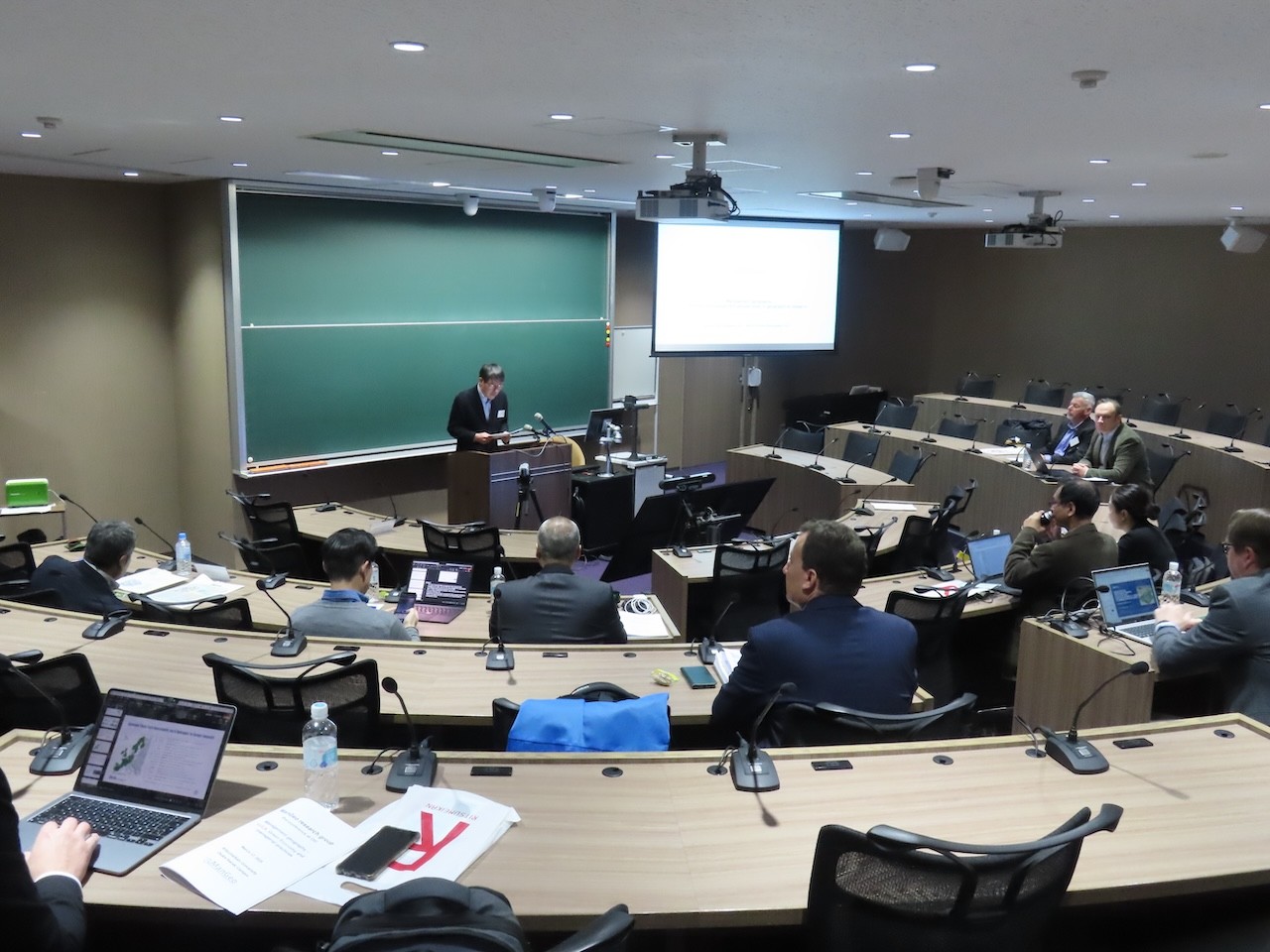 |
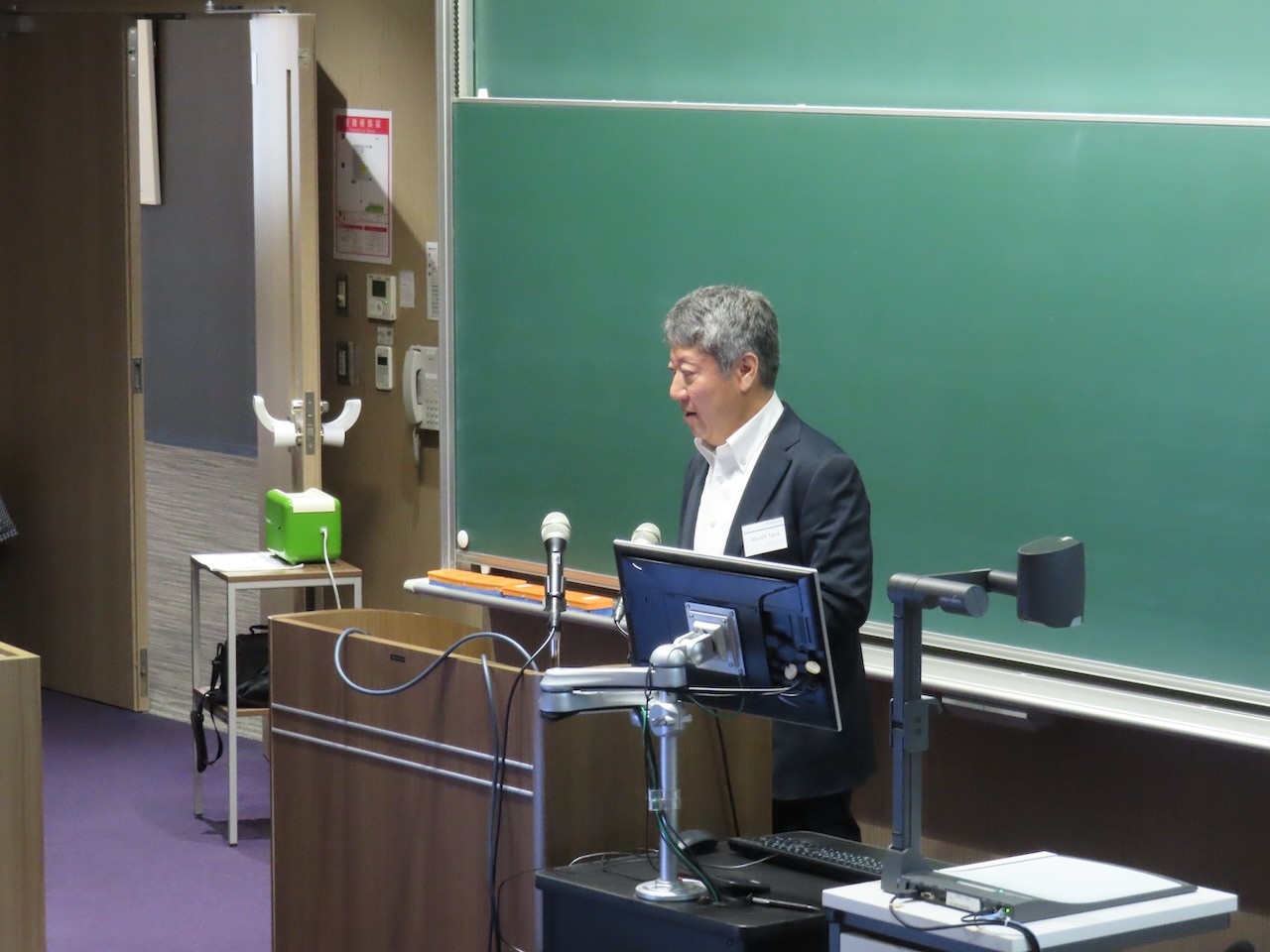 |
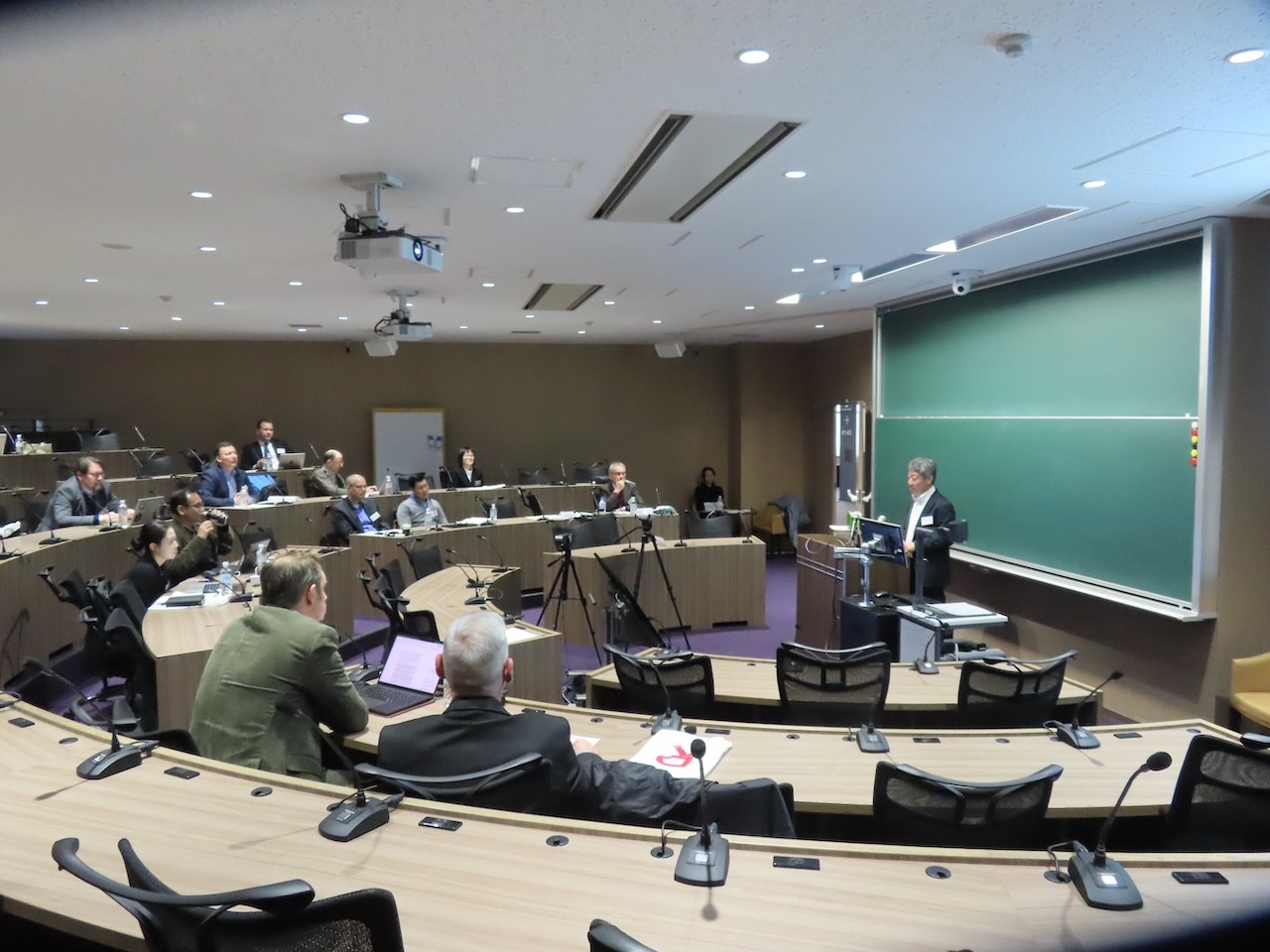 |
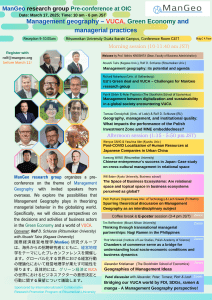 |
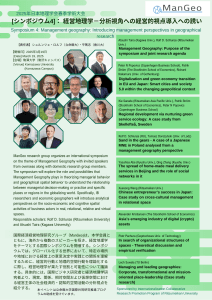 |
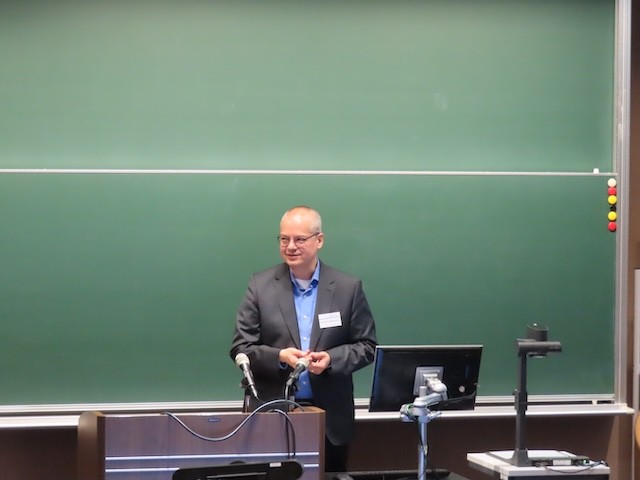 |
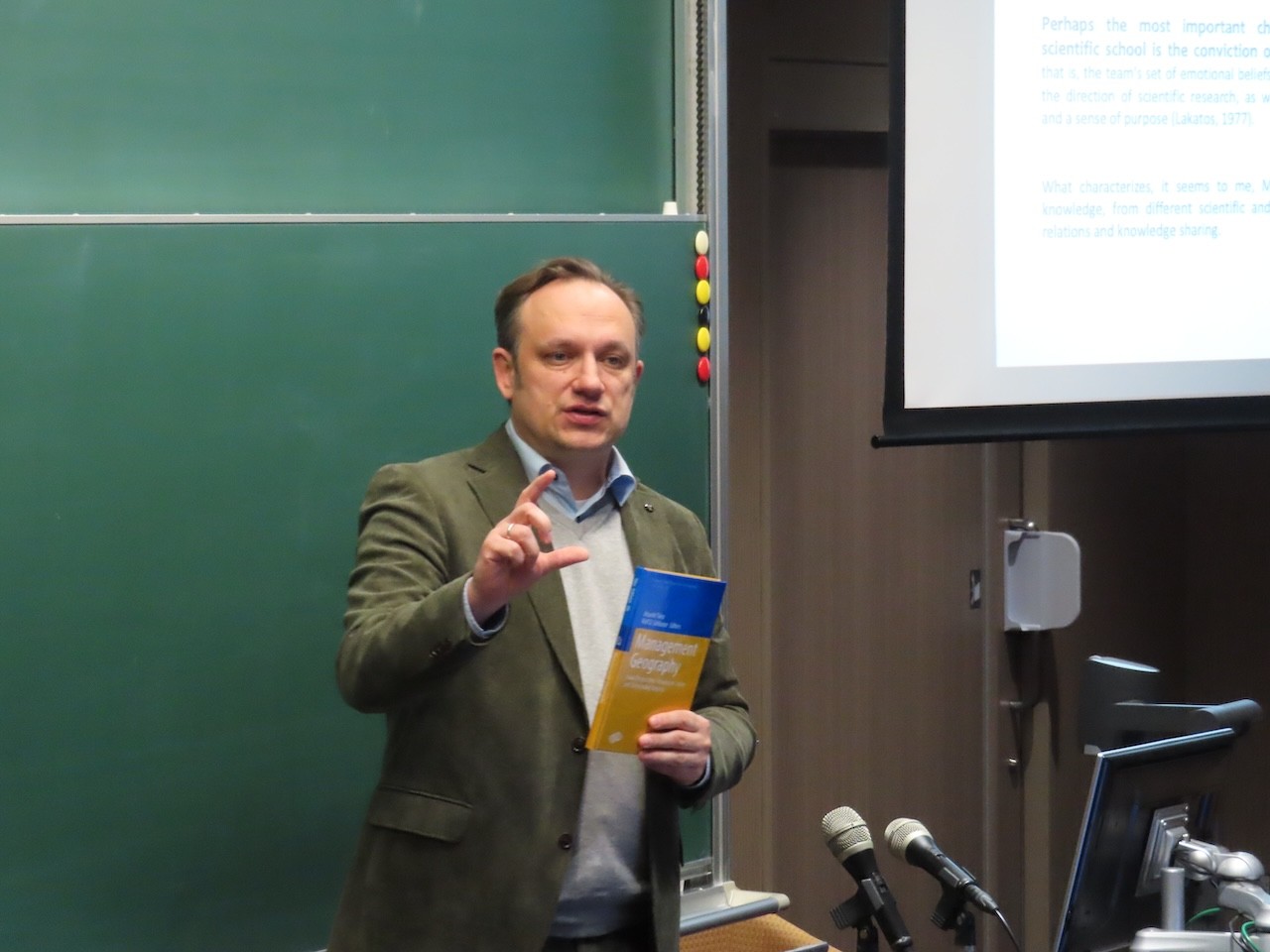 |
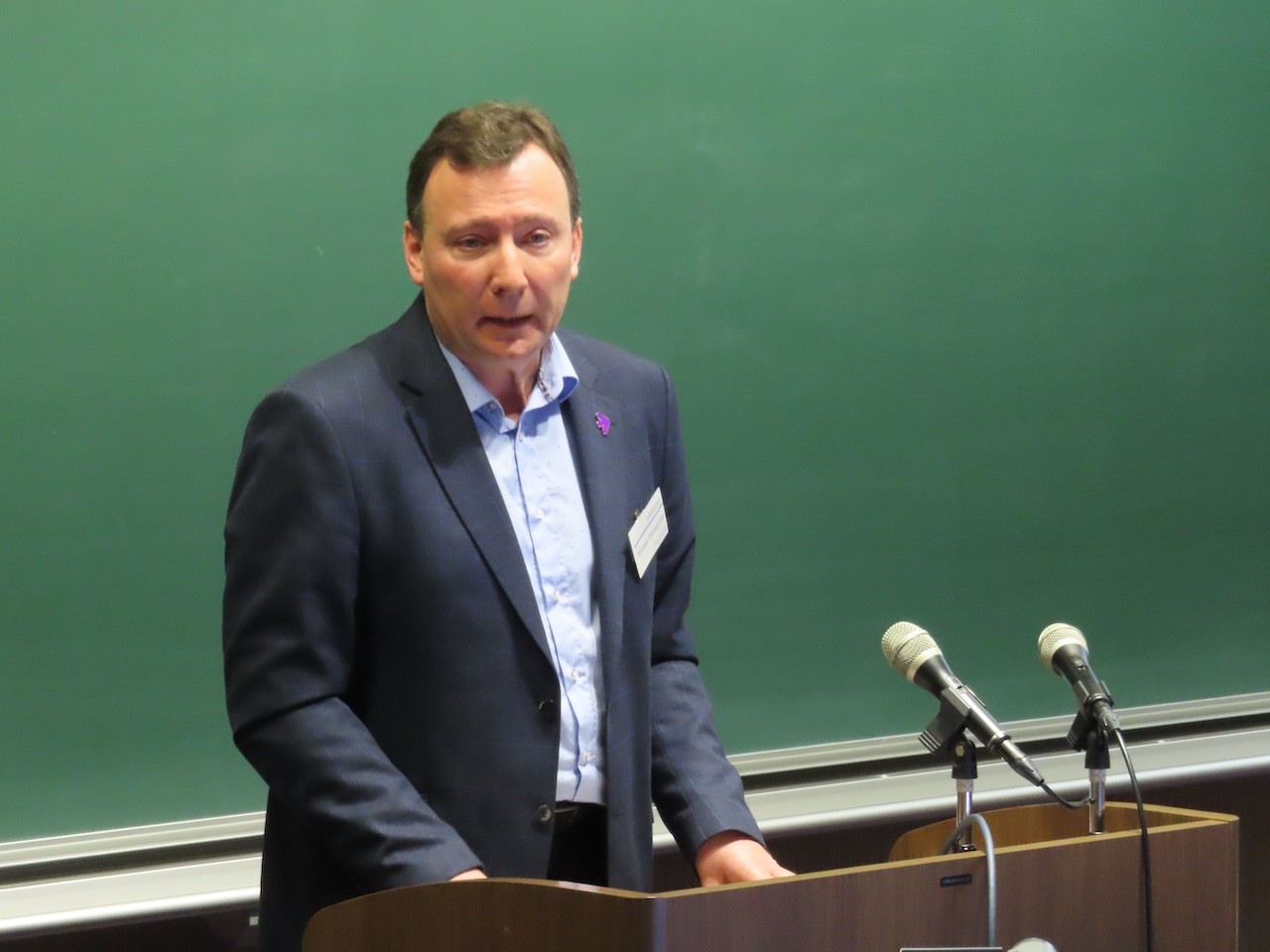 |
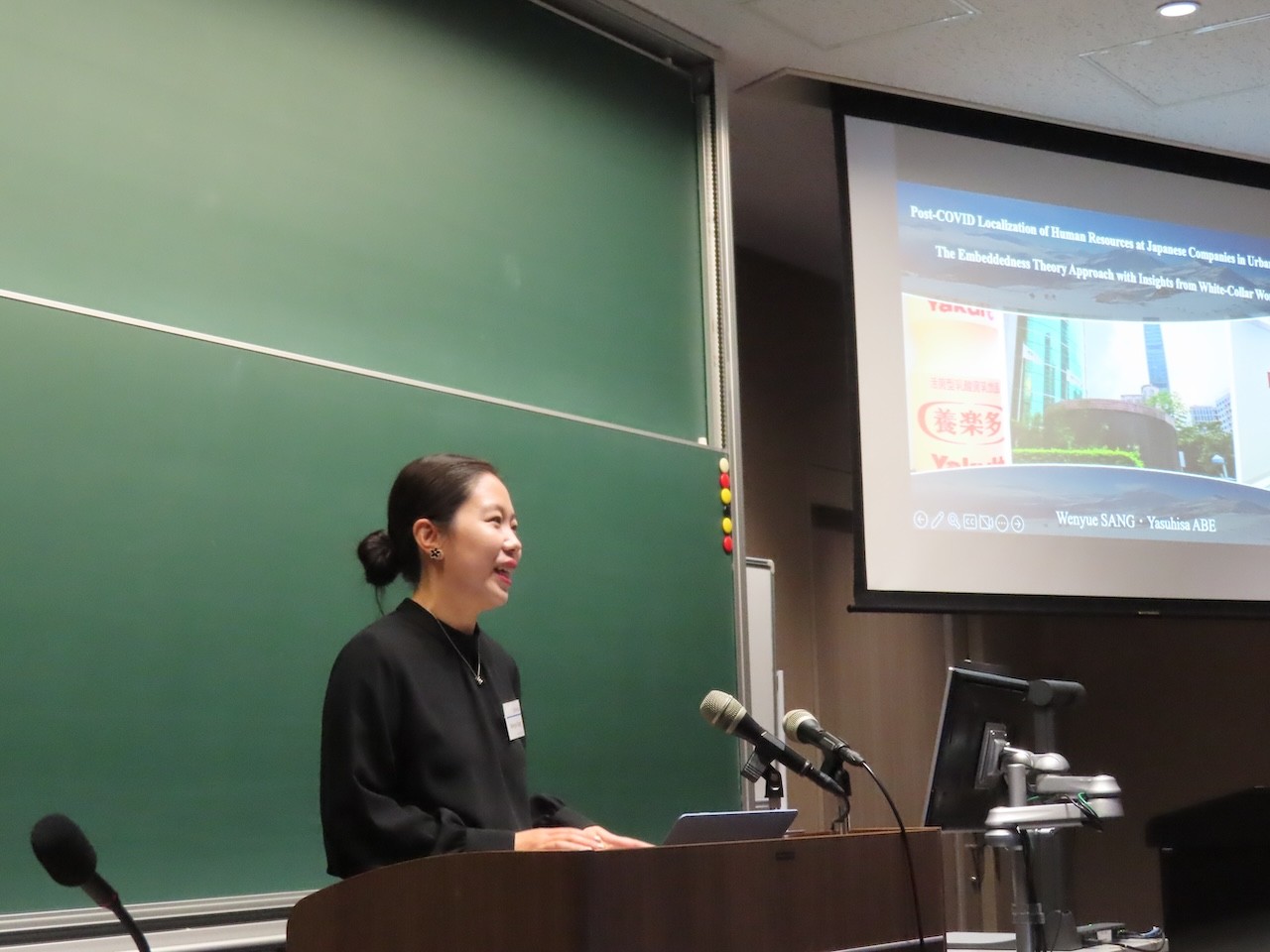 |
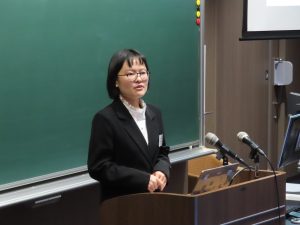 |
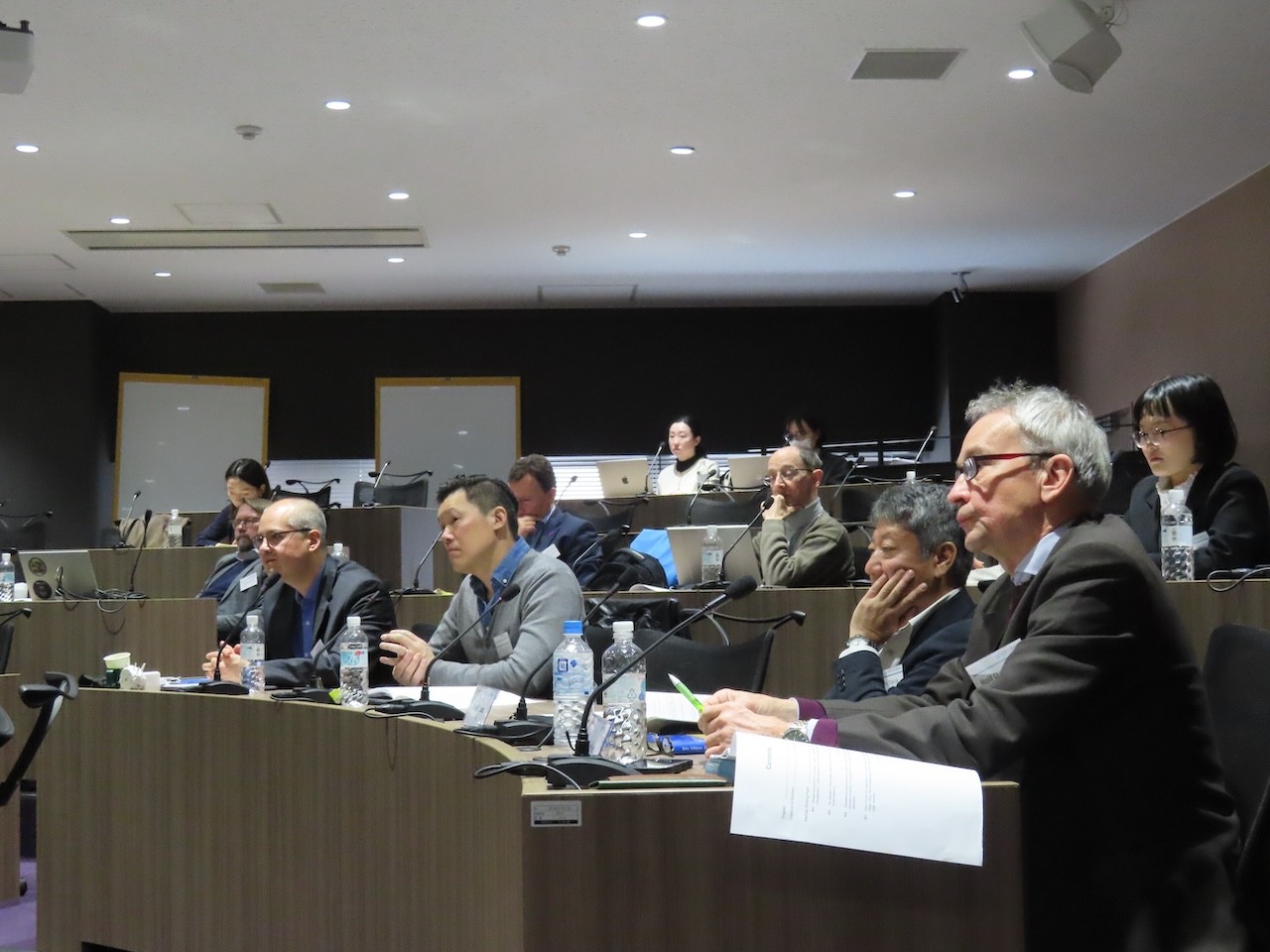 |
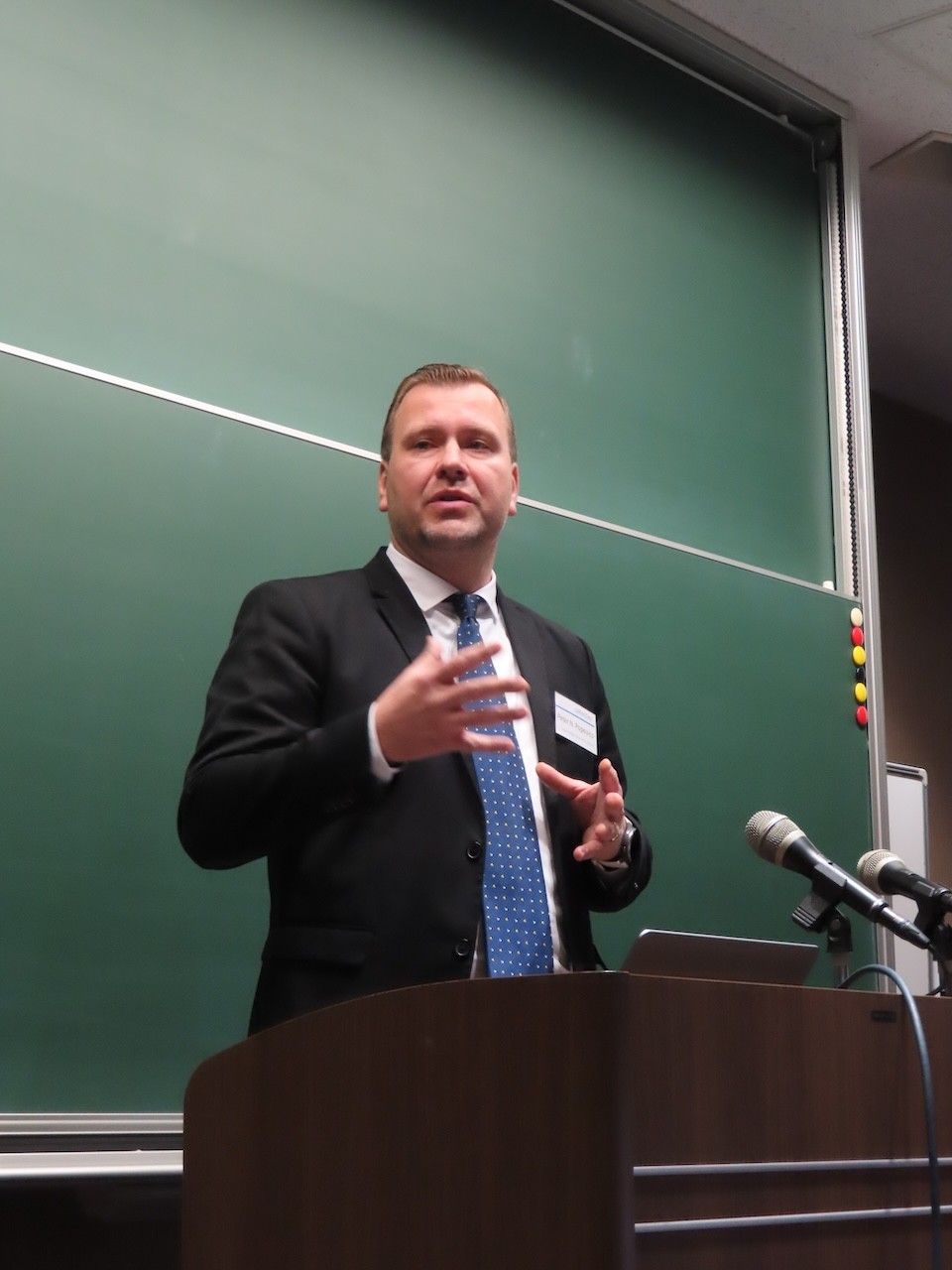 |
|
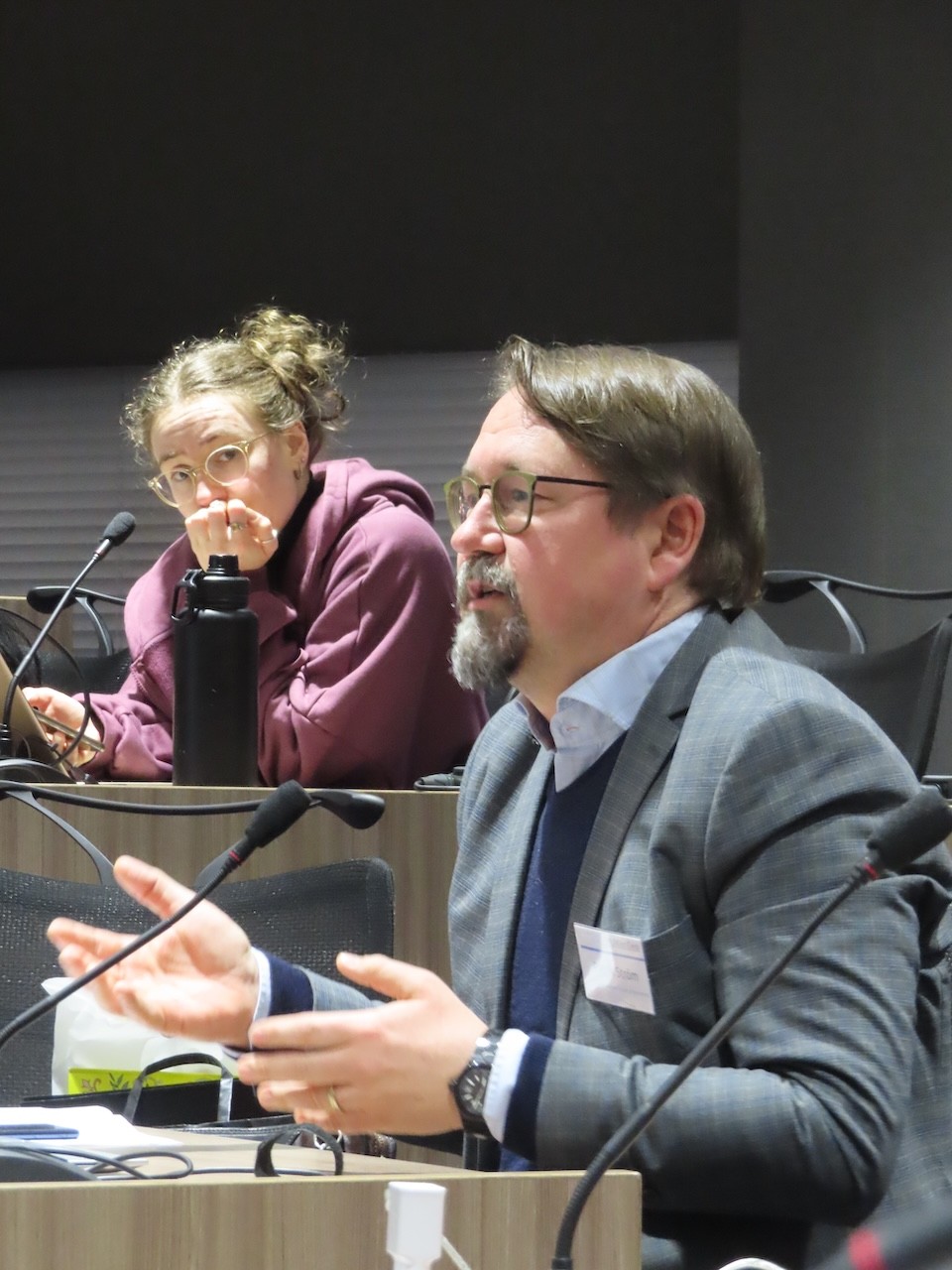 |
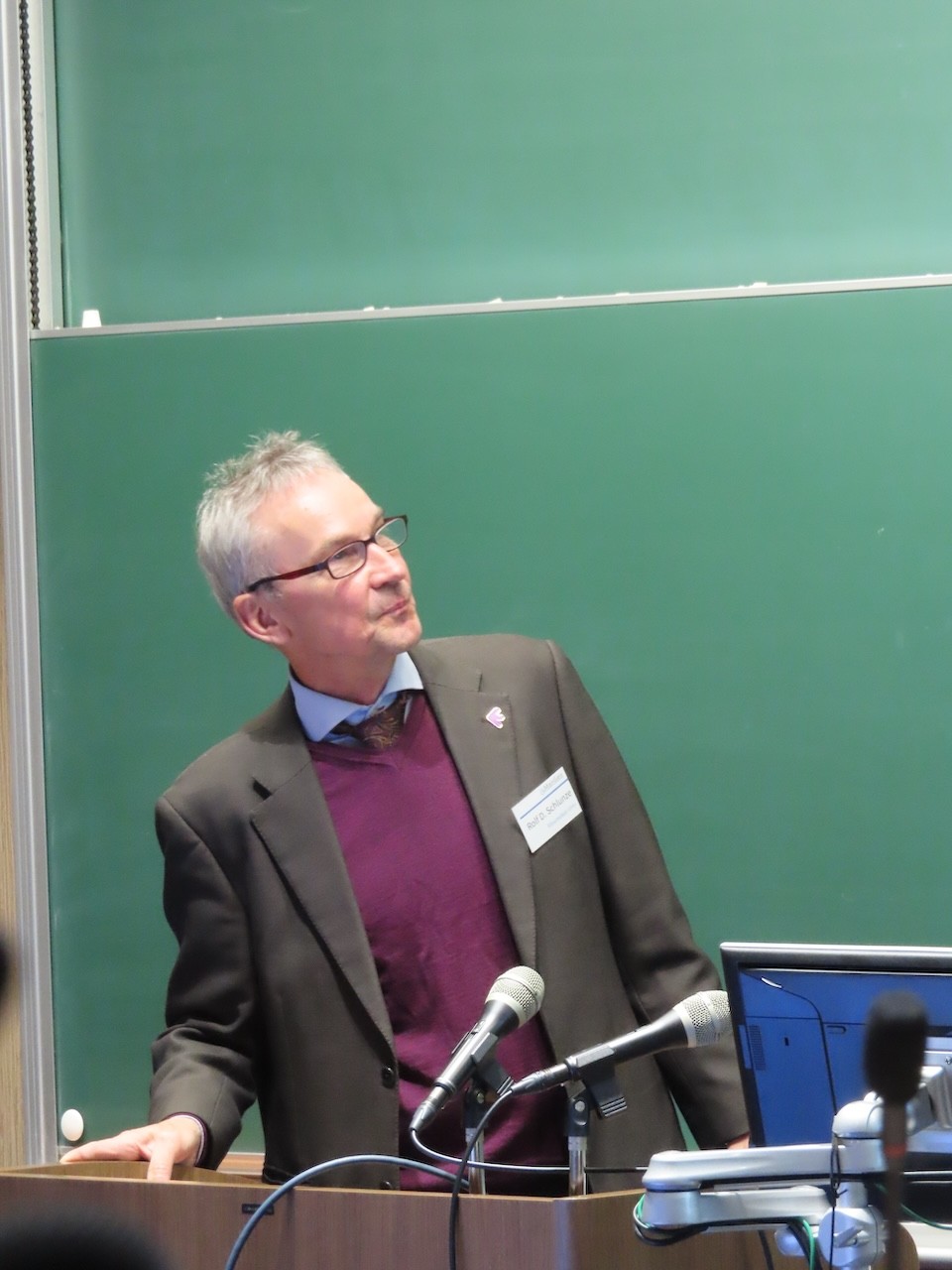 |
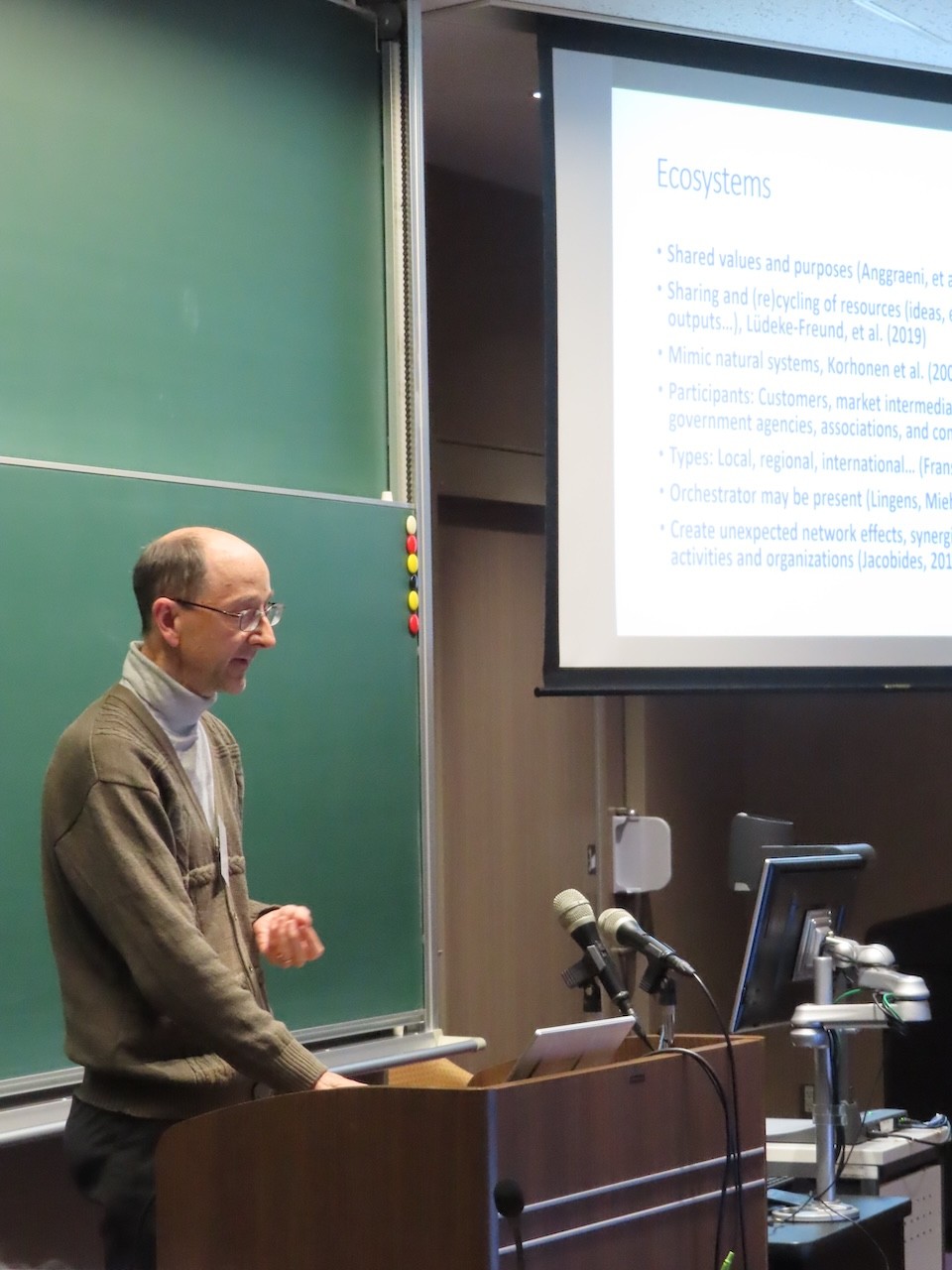 |
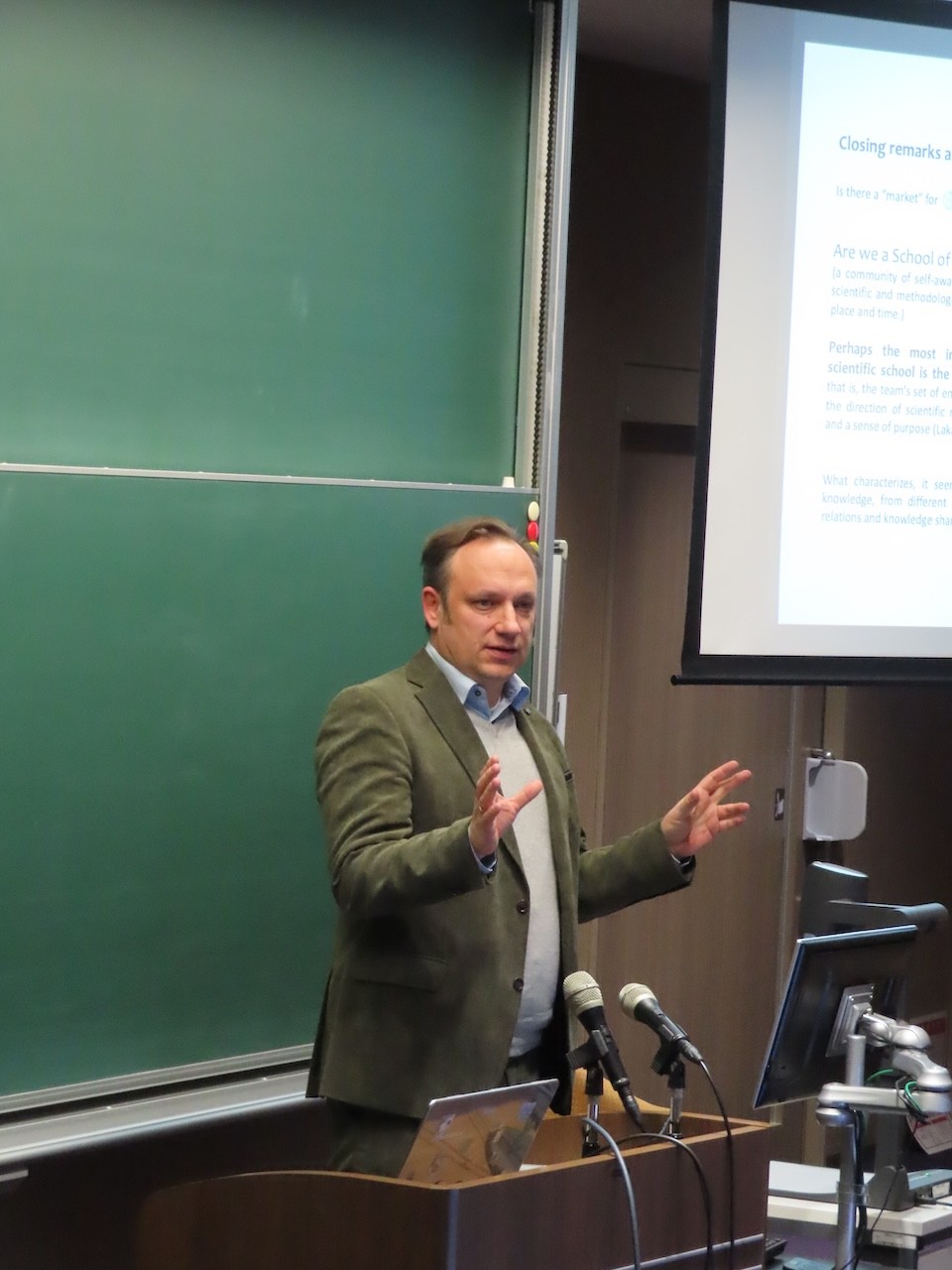 |
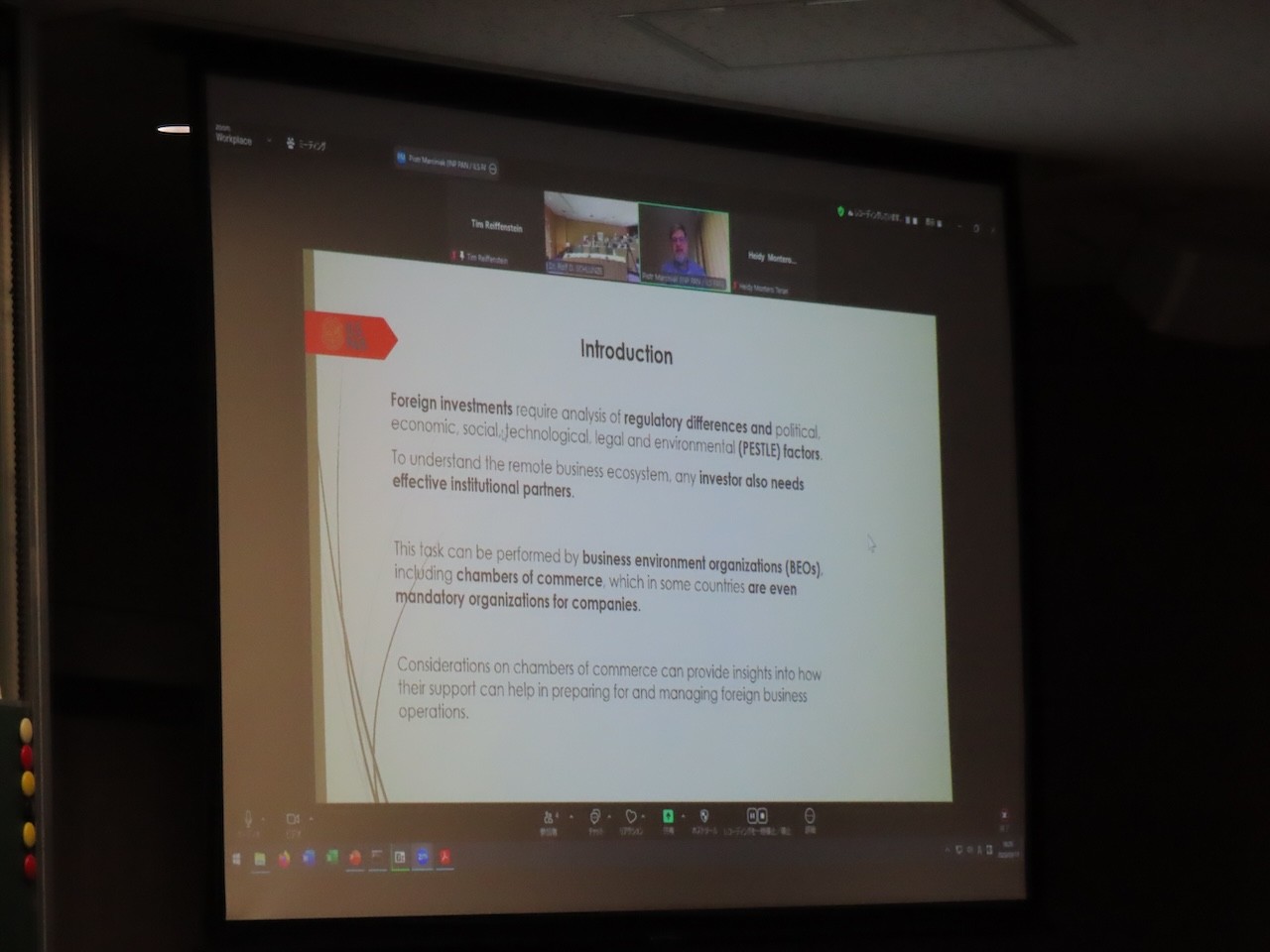 |
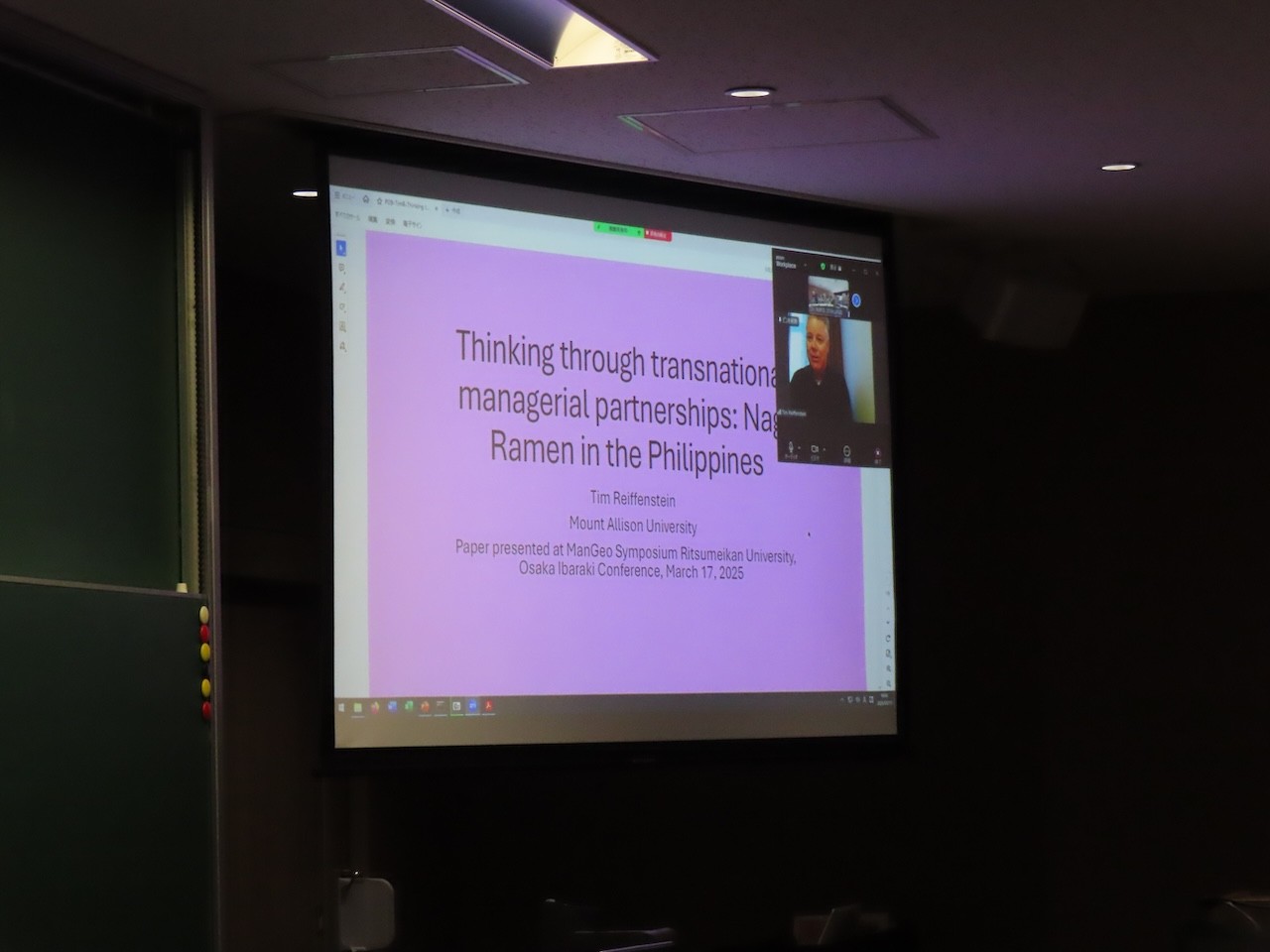 |
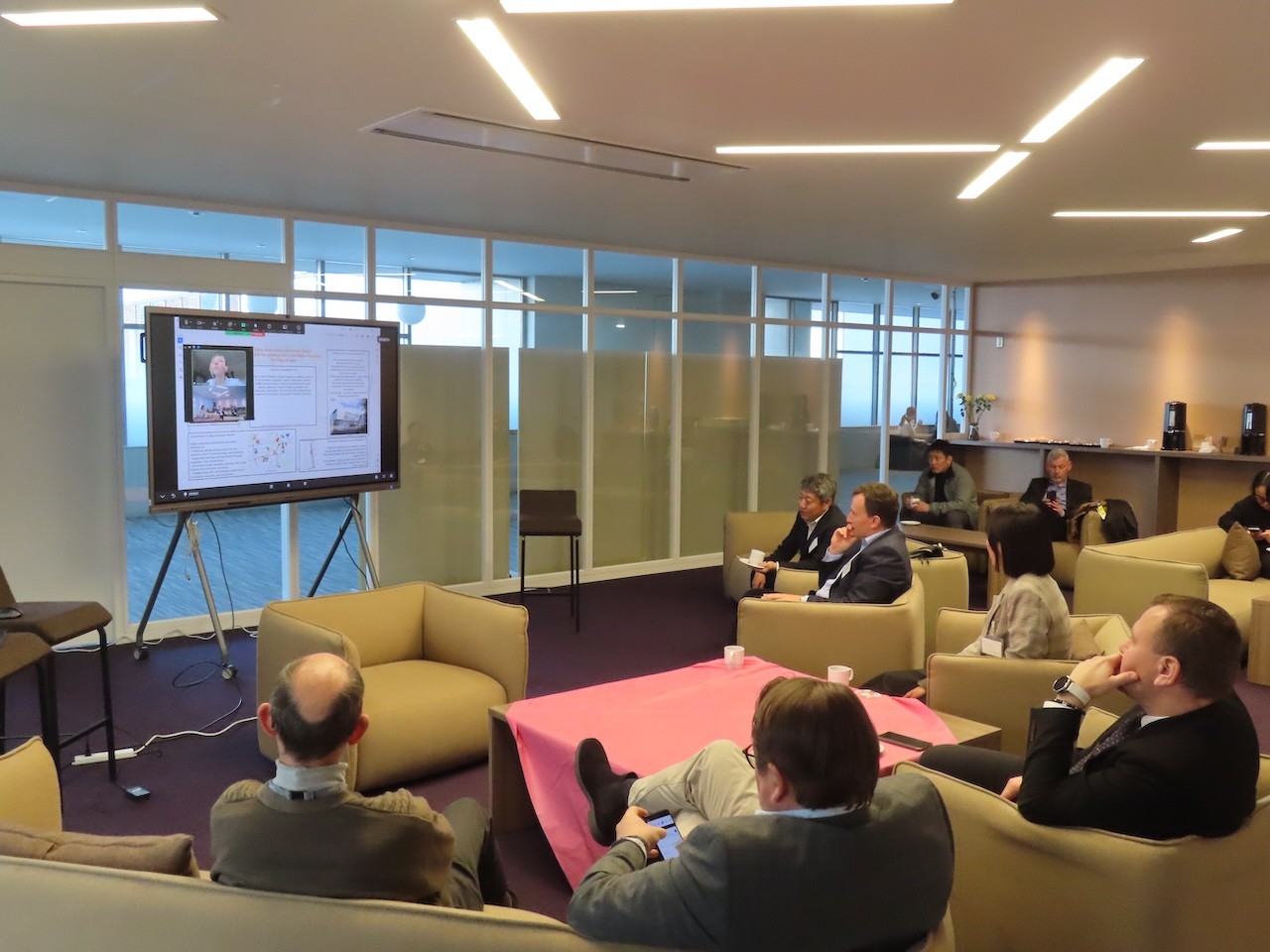 |
|
|
|
|
2023 Research Group Meeting
Research Group Meeting on Embedding MNEs in Poland
We organized our research meeting as a hybrid event entitled Embedding MNEs in Poland – Inward investment promotion of multinational manufacturing companies in Poland. The hybrid event was hosted by RITSUMEIKAN UNIVERSITY OIC Room C473 (2-150 Iwakura-cho, Ibaraki, Osaka, 567-8570 Japan) at JUNE 23, 2023, 16:00-18:00 JST (9:00-11:00 MEZ). Overseas research group members and interested domestic scholars and students were invited discussing options for joint research projects on 1. Manufacturing companies and investment promotion and/or MNEs local and regional aspects in the context of Poland & Japan; 2. Poland’s role in Ukraine’s post-war economic recovery; 3. Economic globalization and local industrial clusters. Dr. Schlunze featured following speakers:
- Dr. hab. Tomasz Dorożyński, Department of International Trade, University of Lodz, Poland
- Hiroshi Tanaka Ph.D., College of Economics, Ritsumeikan University
- Dr. Atsushi Taira, Faculty of Education, Kagawa University
As a discussant Professor Patrik Ström from Stockholm School of Economics joint us from Sweden by ZOOM video call.
Professor Kinoshita gave a welcome to research members flying in from Poland proud of host the ManGeo meeting advertising Ritsumeikan OIC. Professor Rolf D. Schlunze promoted the ManGeo research group books that have been published with Palgrave in 2012 and with Springer Nature in 2022. Definition of Management Geography was introduced to build a common ground for the discussion. The speakers have been introduced by their topics as follows.
The first presenter, Professor Tomasz Dorożyński gave a presentation about the Incentives for attracting investors to Poland: The case study of manufacturing companies. Tomasz showed his gratitude to the host mentioning our efforts on mutual hospitality and academic exchange. In times of VUCA the search for optimal investment locations becomes an important aspect. Incentives need to decide in respect on the particular investment project but with a long-term perspective. In his speech he shared his insides as follows.
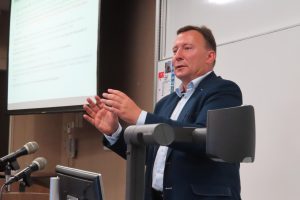
Internationalization is surely one of the major processes observed in contemporary global economy. Multinational enterprises (MNEs) are looking for optimum locations in almost all countries and regions across the world which are politically and economically safe. A foreign investor is interested, above all, in finding a concrete location where he would be able to bring the project to a successful end. With this knowledge in mind, authorities (at different levels) try to attract foreign investors using public resources for this purpose. Incentive schemes offered to potential investors continue to stir heated debates amongst economists, IB researchers and experts. Most governments actively compete for FDIs offering them, e.g., fiscal, financial, regulatory, technical and information tools. However, using incentives to attract MNEs cannot be a priori considered economically justified, as it is connected with incurring costs which, is some circumstances, may exceed expected returns. Such operations may raise doubts not only because economic operators are being subsidized, which means that a government interferes with the market, but because of the selective nature of granted aid. Research studies conducted globally to date, but also in Poland, do not let to unambiguously evaluate the effectiveness of incentives in attracting foreign investors. Most of their results, however, entitle to draw a conclusion that incentives, compared to other (fundamental) factors, played a secondary role in making location choices. Ambiguous and sometimes even contradictory conclusions are, in my opinion, the main reason why in-depth studies on the effects of incentives targeting foreign investors, especially at regional and local levels, should be conducted. Special attention was given to investments in special economic zones (SEZs). SEZs have become a popular investment policy tool especially in emerging economies. Growing popularity of zones among the governments seems to confirm the effectiveness and efficiency of the instrument. More skeptical assessments can be heard from researchers aware that we are dealing with the second best solution, i.e., the one which may, but does not have to, be beneficial to the economy and may also generate loses. Hence the principal scientific goal of the study is to evaluate the economic rationale behind using investment incentives and their impact on location choices made by enterprises with foreign capital. Author used the case of manufacturing companies, including Japanese ones operating in Poland. The primary and secondary data from several sources were analyzed, e.g. from special economic zones in Poland, Polish investment zone program, primary data collected within direct questionnaire studies among foreign investors and other secondary sources. Statistical methods were employed. Finally, he referred to his publications as listed below.
Dorożyński T., & Świerkocki J., (2022), Specjalne strefy ekonomiczne w Polsce. Doświadczenia i perspektywy, Wydawnictwo Uniwersytetu Łódzkiego, Łódź.
Dorożyński, T., Świerkocki, J., & Dobrowolska, B. (2021). Governance of special economic zones and their performance: Evidence from Poland. Entrepreneurial Business and Economics Review, 9(3), 149-167.
Dorożyński, T., Dobrowolska, B., & Kuna-Marszałek, A. (2021), Institutional Quality and its Impact on FDI Inflow: Evidence from the EU Member States, Comparative Economic Research. Central and Eastern Europe, Volume 24(4), 23–44.
Dorożyński T., (2020), Incentives to Attract FDI: Evidence from the Łódź Province, Wydawnictwo Uniwersytetu Łódzkiego, Łódź.
The second presenter, Professor TANAKA Hiroshi from the College of Economics, Ritsumeikan University BKC presented about
The automotive EVisation in the EU and the transformation of the German – cored global value chain. He shared his insides as follows. His study revealed the EVisation and de-Russianisation of the car industry in Europe in terms of the formation and development of integration capacities that guarantee the transition from high-speed, long-distance mobile durable goods to engine-powered car and then EV vehicles. The formation and development of such integration capacities is a combination of 1) the development of indigenous technologies, 2) changes in the product/production architecture of car manufacturing, and 3) the creation of institutional networks. The final conclusions summarize the imperial way of life, Germany’s geopolitical superpower status, the influence of China and the trend towards de-Russianisation.
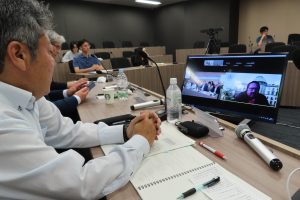 The third presenter Professor TAIRA Atsushi from the Faculty of Education at Kagawa University. Gave a presentation about Economic globalization and local
The third presenter Professor TAIRA Atsushi from the Faculty of Education at Kagawa University. Gave a presentation about Economic globalization and local
industrial clusters: A case study of Glocal production and management strategies of the glove-related industry in Shikoku, Japan. He found that economic globalization has brought severe competitive environment to local industries in the world. Especially, local mundane ‘low-tech’
industries in the developed countries have been facing continuous challenges to survive in the market. The glove-related industry in Eastern Kagawa in Shikoku, Japan, is a good example. The various concepts on the industrial cluster have provided critical tools to explain its formation and development. And the Global Value Chains (GVC) and Global Production Networks (GPN) concepts have contributed to understand processes and configuration of globalization of firms’ operations. Relational perspectives, which suggests an alternative point of view about space and place of firms’ operations, are recently attracting increasing attentions of researchers. This paper argues survival strategies of local industries and firms introducing relational concepts of pipelines and buzz.
Before the presentations the invited presenters had an exchange with young scholars during a coffee break. After the presentation we went to a local pub continuing exchanging ideas and building deep relations Japanese style.
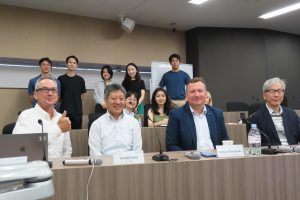
Other previous events
Workshops, symposia and special sessions at international conferences
-
Management Geography – Managers and Management of Space(s) at the 2022GCEG
-
Special Session at 2021 EAMSA annual conference: Management Geography
- Special Session at the 4th GCEG in Oxford
- Spaces of creativity, diversity and global management
- SIEM Research Group Seminar on Chinese management in Japan
- SIEM session at ICAP in Paris 2014
- Report on SIEM session at IGU 2013
- 32nd IGC – Special Session
- 2012 AAG Annual Conference
- 3rd GCEG – Special Session
- HUB 2011 Workshop
-
International Symposium
Regular research group meetings at the AJG conference (日本地理学会 国際経済・経営地理学研究グループ記録)
国際経済・経営地理学研究グループ and/or ManGeo Research Group (former name was SIEM=Spaces of International Economy and Management) has continuously conducted meetings at the Association of Japanese Geographers (AJG) since 2007. Find recent and previous meetings listed below.
Research meetings 2024
Research meeting at 15. Sept. 2024 Autumn conference AJG, SanNan University, Nagoya
Presentation: Wang Xuesong (Ritsumeikan University, Graduate student): Proximity and network formation: A cross-cultural perspective on managerial sustainability
Research meeting at the 2024 Spring conference AJG, Aoyama Gakuin University
We will have our research group meeting as below. Please attend. Thank you.
Date: March 20 (Wed), 1 to 3 pm Venue: Room 17505, Building 17
Presentation: Abe Yasuhisa (Kyushu Univ.) and San Wen-Yue (Graduate student, Kyushu Univ.) Jobs after college graduation and their place preference in China after the COVID-19, and measures of Japanese-affiliated firms. (発表者 阿部康久(九州大)・桑雯月(九州大・院):ポストコロナ期の中国における大卒者の就職先・希望地の変化と日系企業の対応)
Research meetings 2023
Research meeting – September 2023, Kansai University
Research presentation: HOU Shenglan (Graduate student, Ritsumeikan Univ.): The role of hybrid managers in multilingual workplaces: A constructive cross-cultural management perspective
Research meeting – March 2023, Tokyo Metropolitan University
Research meeting – Lost Years 2020 – 2022
In 2020, due to the spread of the new coronavirus, the spring academic conference scheduled at Komazawa University was canceled. The autumn meeting scheduled at Kyushu University was held online. In 2021 and 2022, the AJG conferences were held online due to the spread of the new coronavirus. Finally, the autumn conference held at Kagawa University was held in person again for the first time in these three years due to the government’s relaxation of new coronavirus countermeasures. Since Professor Taira served as the chairperson of the conference executive committee we did not hold our research group meeting.
Thanks to Professor Taira completed the proofreading work with Springer for the Japanese Geographical Society’s English series “Management geography: Asian perspectives focusing on Japan and surrounding regions,” which has been a lengthy review and re-writing process by authors of our research group. Finally, Profs. Taira and Schlunze publish the book as hardcover version on September 27th, 2022.
Research Meeting – September 2019, Niigata University Igarashi Campus.
Research presentation: Rolf Schlunze (Ritsumeikan Univ.): The role of network promoters shaping spaces of innovation communities: Comparative studies on cross-cultural R&D cooperation and Joint Ventures.
Business meeting was held discussing about a) our publication plan in the English Springer Nature Book series; and b) the Spring Academic Conference (Komazawa University) in March 2020.
Research meeting – March 2019, Senshu University.
The following symposium was held jointly with the Geography of Industrial Economics Research Group. Profs. Ishimaru and Taira gave presentations. The theme of the symposium was entitled “Return to the countryside” of the population and regional conditions for employment and entrepreneurship
- Satoshi Ishimaru (Fukuoka University of Education): “Actual status of social business and entrepreneurial environment in rural areas”
- Atsushi Taira (Kagawa University): “Support for small and medium-sized enterprises (including entrepreneurship) in local areas and learning from each other – Using Kagawa Prefecture as a case study”
Research Meeting – September 2018, Wakayama University.
Research presentation:
Presenter: Chen Lin (Hiroshima University): Characteristics and survival factors of companies located in inland areas of Fujian Province, China
A business meeting about the Spring Conference of the Japanese Geographical Society (March, Senshu University). At the Spring Conference (Senshu University) in March 2019, we are planning to hold a symposium titled “Population’s Return to the Rural Area and Regional Conditions for Employment and Entrepreneurship” in collaboration with the Geography of Industrial Economics Research Group.
Research Meeting – March 2018, Tokyo Gakugei University.
Research presentations:
- Yasuhisa Abe (Kyushu University), Yu Chen (Graduate School of Kyushu University): Research on the development of the apparel industry in the southern region of Jiangsu Province, China – Focusing on local government policies and business decisions of entrepreneurs
- Natsuki Kamakura (University of Tokyo): A study on the management issues of global R&D in Japanese chemical companies
A business meeting about the Japanese Geographical Society Autumn Conference (September, Wakayama University) was conducted.
Reports about previous meetings (2007 to 2017)
- Report of 17th meeting
- Report of 16th meeting
- Report of 15th meeting
- Report of 14th meeting
- Report of 13th meeting
- Report of 12th meeting
- Report of 11th meeting
- Report of 10th meeting
- Report of 9th meeting
- Report of 8th meeting
- Report of 7th meeting
- Report of 6th meeting
- Report of 5th meeting
- Report of 4th meeting
- Report of 3rd meeting
- Report of 2nd meeting
- Report of 1st meeting

